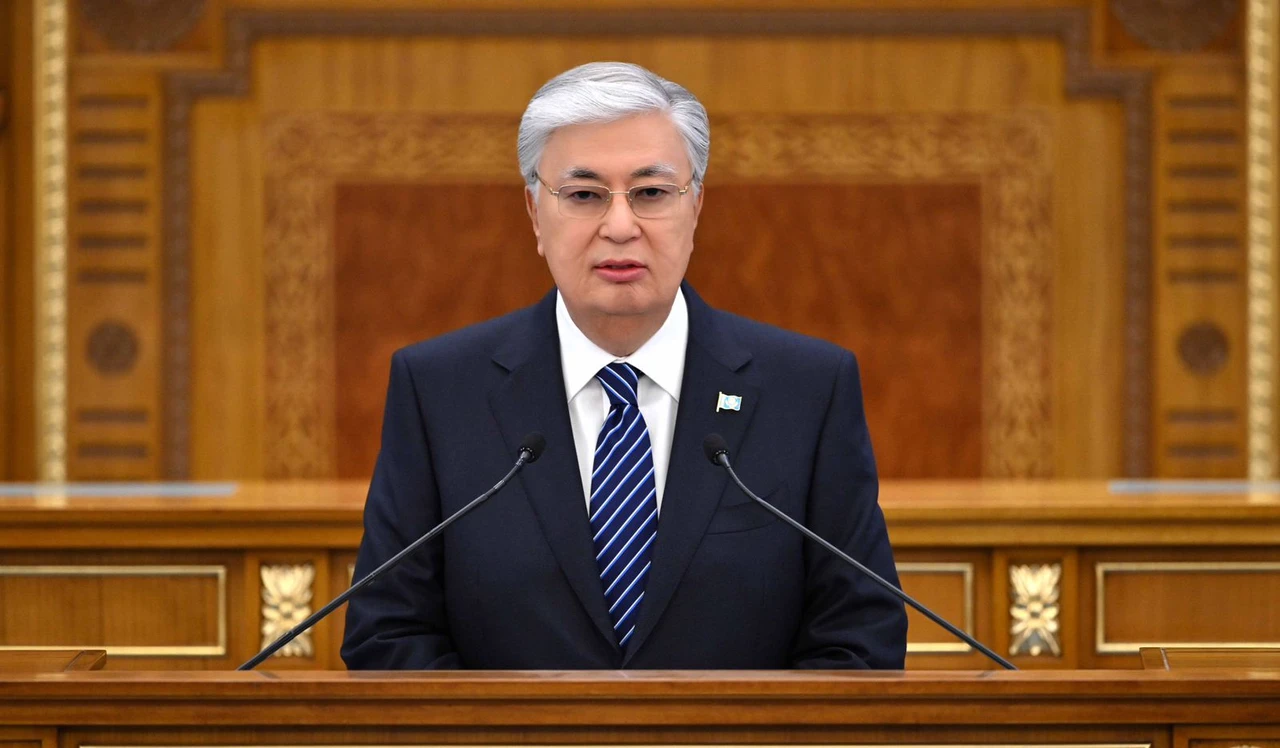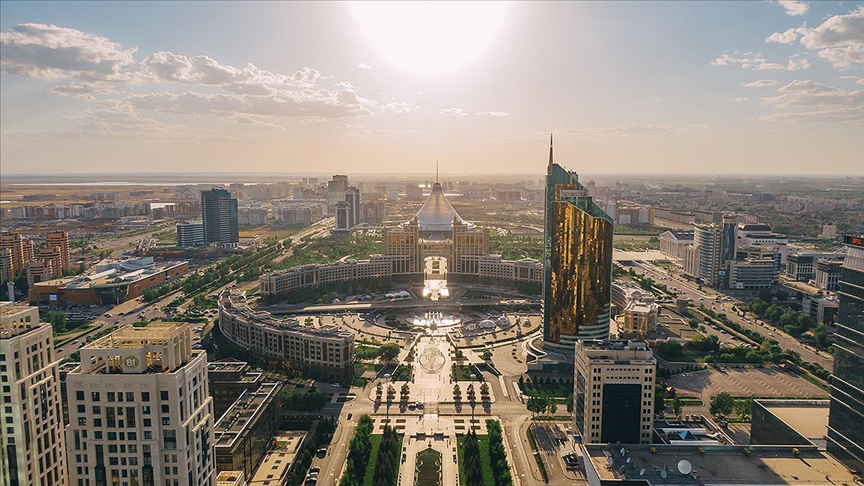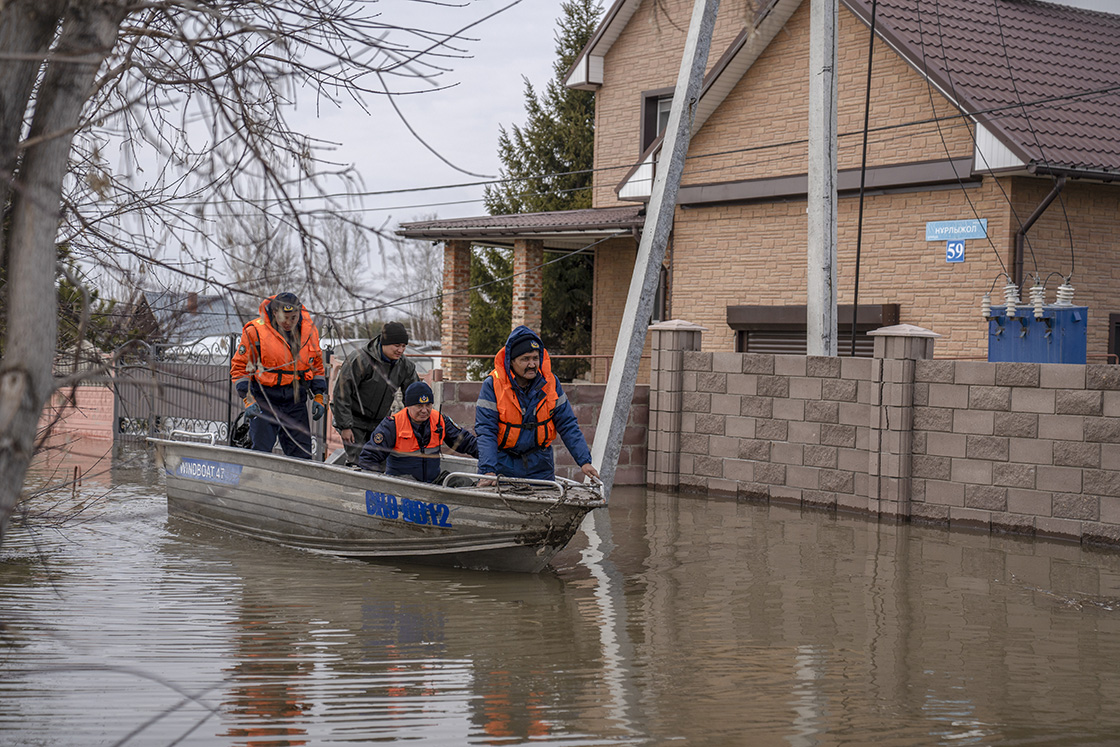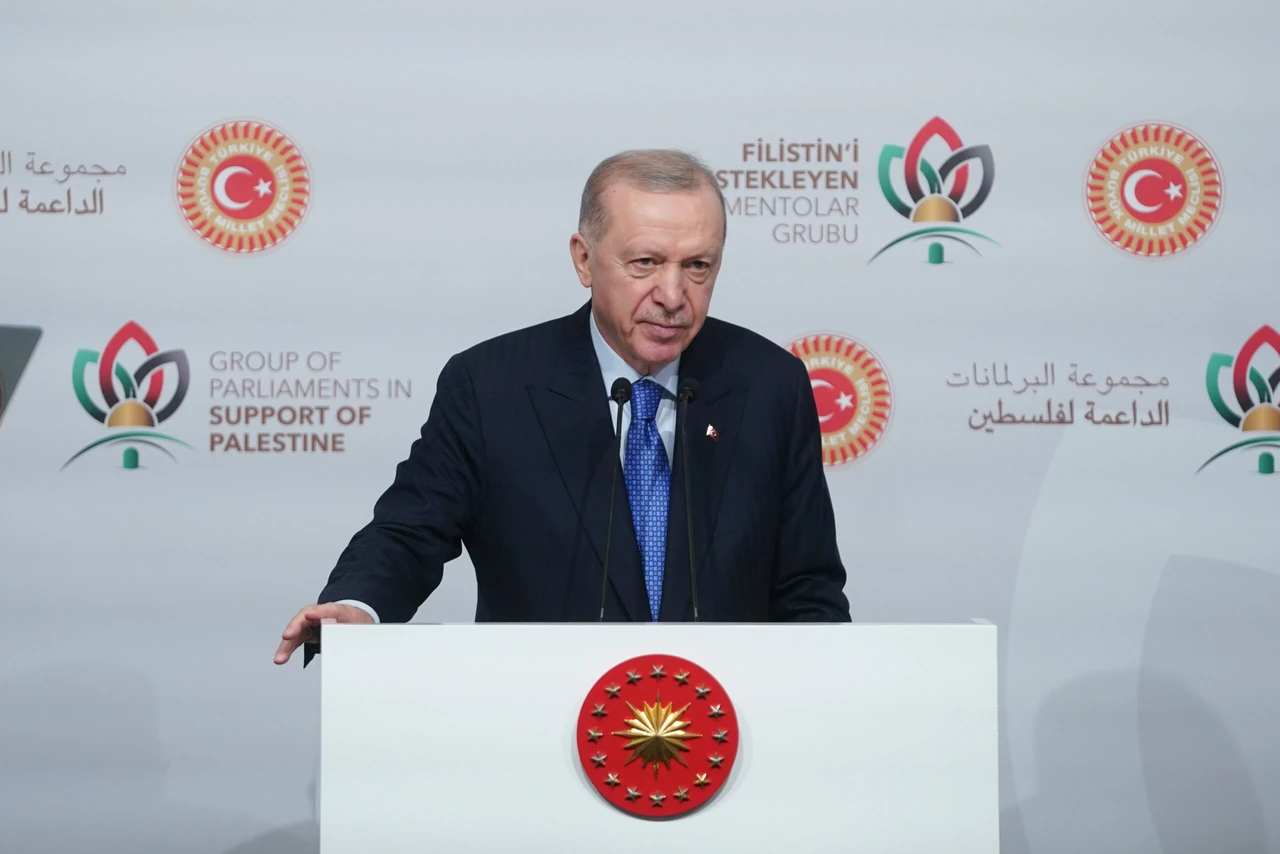Kazakhstan’s key achievements, challenges in 2024: President Tokayev
 President of Kazakhstan Kassym-Jomart Tokayev delivering his speech at Kazakhstan Parliament in Astana, Kazakhstan on September 2, 2024. (Courtesy of Consulate General of the Republic of Kazakhstan)
President of Kazakhstan Kassym-Jomart Tokayev delivering his speech at Kazakhstan Parliament in Astana, Kazakhstan on September 2, 2024. (Courtesy of Consulate General of the Republic of Kazakhstan)
Kazakhstan’s President Kassym-Jomart Tokayev shared a comprehensive review of the significant developments of 2024 in an interview with Ana Tili (Mother Tongue) newspaper on Friday. His reflections emphasized the transformative economic reforms, large-scale infrastructure projects and social initiatives that marked 2024.
Tokayev set a bold goal to double the size of the national economy and steer Kazakhstan toward becoming a more just and equitable society.
Reflecting on these goals, Tokayev said, “At the start of last year, I stated that 2024 would be a defining year for Kazakhstan, and indeed it has proven to be one. Through systemic and sometimes challenging economic reforms, we have laid a strong foundation for the country’s development over the next five years. A significant number of projects and initiatives have been successfully completed, with even more in the pipeline.”

He highlighted the progress made across various sectors, noting that all regions of Kazakhstan had modernized their deteriorating infrastructure. Over the past year, the country completed the construction of 18 million square meters of housing and built or repaired 7,000 kilometers of highways.
Additionally, new passenger terminals were launched at airports in Almaty, Kyzylorda, and Shymkent, marking important milestones in the country’s aviation development. Large-scale projects were also carried out in Kazakhstan’s mining, petrochemical, and metallurgical sectors, further driving the economy forward.
Tokayev underscored the progress made in Kazakhstan’s manufacturing sector, which has now grown to nearly match the extractive industries in terms of its share of the overall industrial structure. He also celebrated the achievements of the agricultural sector, noting that farmers had achieved a record-breaking harvest of nearly 27 million tons of grain—the highest in the past decade.
On the social front, Tokayev emphasized the government’s commitment to improving the welfare of citizens. He pointed to the launch of the National Fund for Children, which began providing direct payments to families, as well as increases in pensions, allowances, scholarships, and civil servant salaries.
Over 100 new schools, kindergartens, and fitness centers were built, and more than 10 foreign universities opened branches in Kazakhstan. Funding for the sciences was also boosted, while cultural and sporting initiatives received strong government support.
This represents a significant investment in strengthening the potential of our citizens. While the year was undoubtedly challenging, particularly due to external factors and natural disasters, Kazakhstan has managed to not only stabilize the situation but also continue its reform agenda, including further development of the procreation strategy.
Kazakhstan’s President Kassym-Jomart Tokayev
Lessons from 2024 floods
One of the most significant challenges faced by Kazakhstan in 2024 was the catastrophic flooding in the spring. The floods forced tens of thousands of people to evacuate and caused widespread destruction, including damage to homes, roads, bridges and agricultural facilities, as well as significant losses in livestock.
Tokayev acknowledged the unprecedented scale of the disaster, stating, “Last year’s floods were a serious test for our country. Kazakhstan had never experienced such large-scale flooding before. However, the government responded swiftly to the crisis and took immediate steps to mitigate the damage.”

The president noted that many of the flood-related damages could have been mitigated with better planning over the past decades, particularly in the construction of protective dams and hydraulic structures.
To address this oversight, Tokayev revealed that the government had already begun working on a comprehensive plan for water management. This includes the development of over 40 new reservoirs, the reconstruction of 37 existing ones, and the modernization of more than 14,000 kilometers of irrigation canals by 2030. The new Water Code, currently under review by the Kazakh Parliament, is a central part of this effort.
The government has also launched a large-scale modernization of flood forecasting and emergency response systems. To support this, Kazakhstan has established the Kazakh National University of Water Resources and Irrigation, aiming to address the shortage of water specialists and strengthen research capabilities in water management.
In the wake of the floods, the state’s response was effective. Not a single affected family was left without support. Houses were rebuilt, apartments were provided, infrastructure was restored, and compensation was offered to all residents and businesses impacted by the floods.
Kazakhstan’s President Kassym-Jomart Tokayev
At the One Water Summit in Saudi Arabia in December, co-chaired by Kazakhstan and France, Tokayev further emphasized the importance of water security. “I stressed at the summit the need to strengthen resilience to water-related disasters,” he said.
“Water security and climate change are global challenges that require international cooperation. These issues are a priority for Kazakhstan.”
Looking ahead
As Kazakhstan moves into 2025, Tokayev remains optimistic about the future. He emphasized the importance of continued reform and development, particularly in sectors like infrastructure, social welfare, and environmental sustainability.
With a clear focus on long-term growth, Kazakhstan is positioned to emerge stronger from the challenges of 2024 and build on the momentum of its ambitious goals for the coming years.



